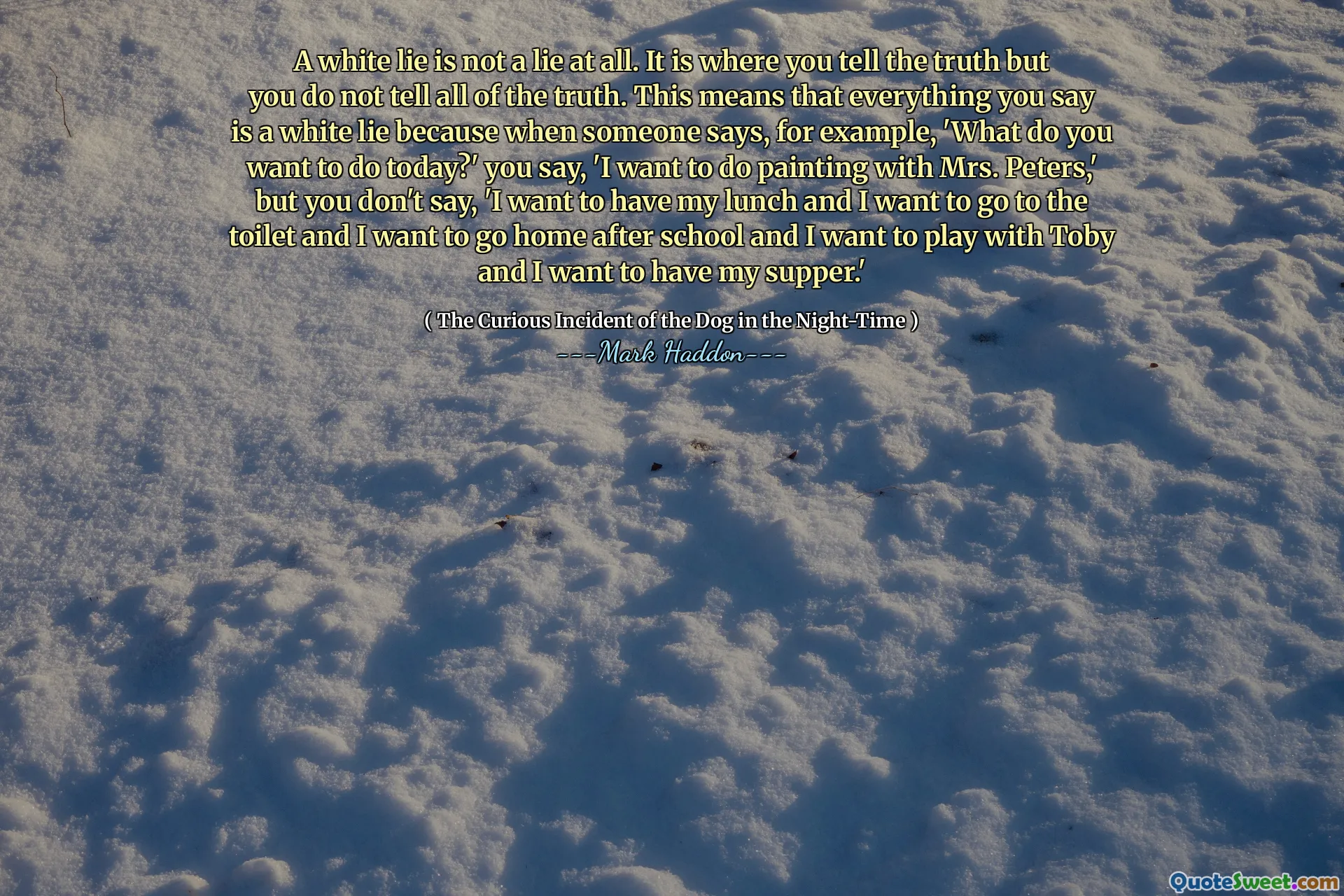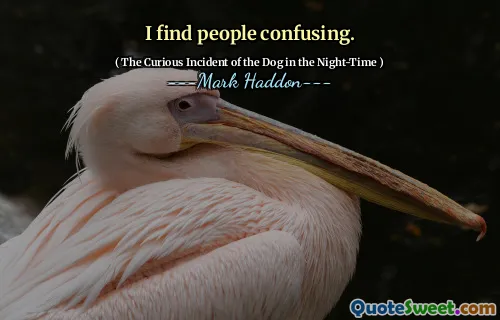
A white lie is not a lie at all. It is where you tell the truth but you do not tell all of the truth. This means that everything you say is a white lie because when someone says, for example, 'What do you want to do today?' you say, 'I want to do painting with Mrs. Peters,' but you don't say, 'I want to have my lunch and I want to go to the toilet and I want to go home after school and I want to play with Toby and I want to have my supper.'
This quote delves into the subtle nuances of communication and honesty, highlighting how the boundaries between truth and lies can blur in everyday interactions. It prompts reflection on the social norms that often necessitate withholding full information, such as small talk or polite confessions. The analogy of a white lie suggests that truth is often filtered or partial, motivated by considerations of kindness, privacy, or social harmony rather than deceit. In human relationships, complete honesty may sometimes be impractical or potentially hurtful, leading people to share only selected truths. However, this raises questions about authenticity and whether partial truths diminish our integrity or serve a higher purpose. The example of answering a simple question about leisure activities illustrates how people naturally omit details, either consciously or unconsciously, to construct socially acceptable narratives. This notion challenges us to consider the ethical boundaries of honesty and the importance of transparency versus tactfulness. It also invites introspection about one's own communication style — Are we always truthful? Do we sometimes omit information to protect others or to avoid conflict? Ultimately, understanding the role of white lies in social dynamics can lead to more mindful interactions and a nuanced appreciation of honesty in human relationships, recognizing that communication is often a balance between truth and compassion.







